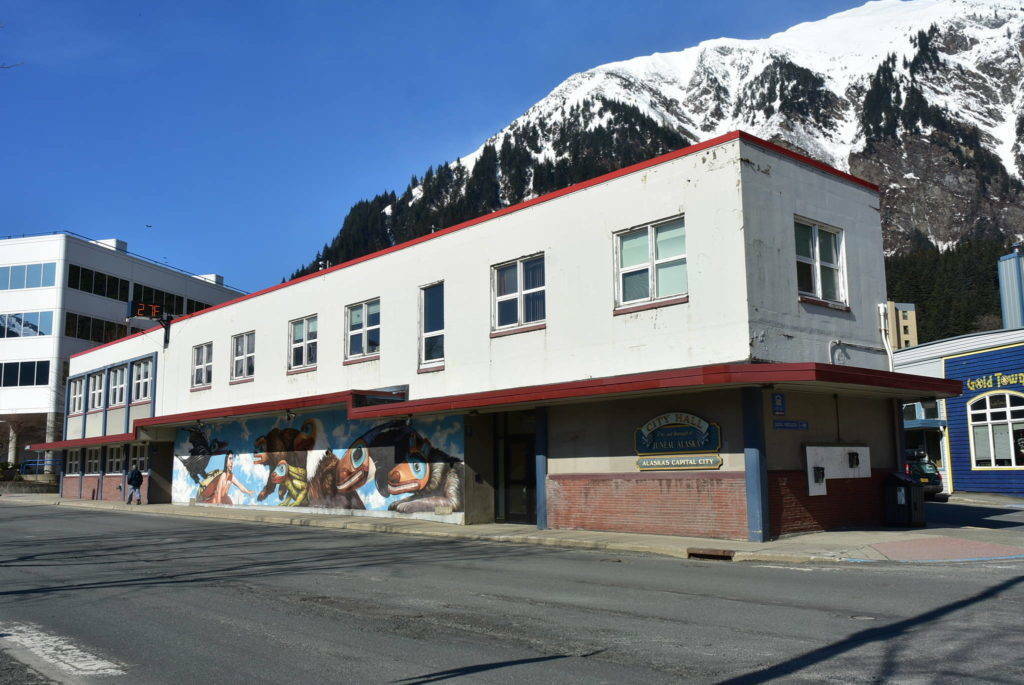The good news as Juneau’s leaders begin the multi-week process of determining the upcoming budget is there’s less uncertainty and almost certainly more income from sources such as tourism with the COVID-19 pandemic seemingly ending.
The bad news is the city already faces a significant deficit that’s likely to increase as the process evolves, inflation is rampant and the end of the pandemic means there’s “no federal knight in shining armor to save us through the next phase of this.”
That’s the assessment of top city administrators as the proposed 2023-24 budget was introduced during the Juneau Assembly meeting Monday night. A more detailed overview of the budget will be presented at 5:30 p.m. Wednesday at City Hall when the assembly’s finance committee gathers for the first in a series of weekly meetings where various aspects of the city’s spending plan will be reviewed and determined.
The proposed $408 million budget for city, school district and hospital operations is $26.9 million lower than the fiscal 2022 amended budget. Jeff Rogers, the city’s finance director, told the assembly there’s an initial deficit of $3.4 million “which is likely to only get bigger during the process” since costs such as wage and insurance increases are not currently included.
“I think that’s the thing we’ll wrestle with,” he said. “What does it mean to start with a deficit and what will it mean for next year?”
But while making the books balance will be a challenge, there likely won‘t be the turmoil caused by uncertainty about a wide range of revenues and expenses affected during the pandemic, Rogers said.
“I think it will be a good process and certainly a very different process than we’ve had the past couple of years,” he said.
Nonetheless, the process will be difficult as “Juneau emerges from the most severe economic downturn in memory,” City Manager Rorie Watt wrote in an introductory summary in the proposed budget.
“The FY21 and FY22 budget processes were substantially shaped by dire uncertainty,” he wrote. “One thing is now very clear — colossal federal revenues protected CBJ from a devastating fiscal outcome.”
More than $47 million in federal funds prevented the city from burning through all of its reserve funds and subsequently cutting services even further than occurred, Watt noted.
“The harsh reality of today is that the period of unprecedented federal support is behind us,” he added. “CBJ cannot forecast to receive further general fund support from the federal government. We must start building a budget that pays for itself with current revenue.”
The proposed budget anticipates sales tax revenues and cruise ship passenger fees returning to near pre-pandemic levels during the coming year, with about one million passengers expected this summer and more next summer. It also projects a 6.2% increase in total borough-wide property valuation.
“This is primarily reflective of the robust residential home sales market during the pandemic in response to high demand and low supply of homes,” a press release issued by the city Tuesday states. “These revenue increases are offset by inflationary cost growth in both the operating and capital budgets, as well as shifting costs for education funding from the state to the city as a result of property valuation increases. These factors contribute to a general fund deficit of $3.4 million in the FY23 proposed budget.”
Budget highlights
The city’s news release highlights the following as major components of the proposed budget:
— $86.7 million for the Juneau School District, a decrease of $5.7 million (6.2%) over the FY22 Amended Budget. This decrease primarily reflects one-time expenditures in FY22 associated with the Elementary and Secondary School Emergency Relief Fund grant to address the impacts of the COVID-19 pandemic on students, as well as a reduction to the Public Employees’ and Teacher retirement systems on-behalf contributions.
— $179.4 million for Enterprise Funds (hospital, airport, water utilities, docks, and harbors), an increase of $18.5 million (11.5 %). This change is primarily due to higher anticipated patient volume at the hospital as a result of increased capacity.
— $87.3 million for general government, an increase of $705,600 (0.8%) from the FY22 Amended Budget. While total budget change is relatively small, the budget reflects a big shift from federal pandemic relief revenues back to local taxes and other revenues.
— $36.5 million for capital improvement projects, a decrease of $32.3 million (47%) from the FY22 Amended Budget. This decrease is a result of significant supplemental appropriations made in FY22 to the capital budget, as well as the Hospital issuing $20 million in revenue bonds for which the proceeds were fully appropriated to capital projects.
— $10.9 million for the debt service budget, a decrease of $4.2 million (27.7%) over the FY22 Amended Budget. This reflects a reduction in outstanding school construction debt, as multiple bonds were fully paid off during FY22. However, unreimbursed school bond debt from
FY22 will be paid off with property taxes collected in FY23, which keeps the debt service portion of the mill rate flat.
The budget proposes a property tax increase of 0.1 mills, resulting in a total mill levy rate of 10.66 mills.
“Prior to the 10.56 mill rate established in 2021 for the FY22 budget, CBJ’s property tax rate was 10.66, or higher, for eight years straight,” the city noted in a news release.
• Contact reporter Mark Sabbatini at Mark.Sabbatini@juneauempire.com.

